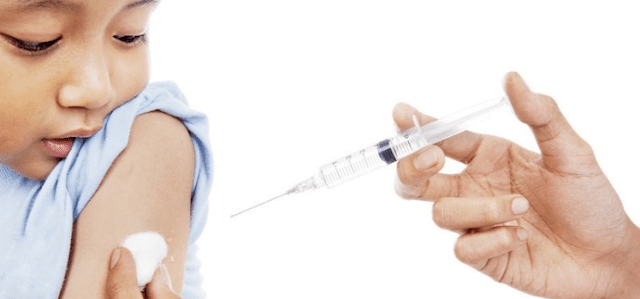What are the Signs That Your Kid Has Tuberculosis?
Tuberculosis (TB) is primarily a bacterial lung infection or disease, caused by a bacterium called Mycobacterium tuberculosis. It is of two kinds: Inactive/Latent TB infection and Active TB disease. The Latent TB infection does not make a person sick and is not spreadable. However, the opposite is true in the case of Active TB disease.
Tuberculosis can affect anyone and is capable of spreading to different body parts at a time. This health concern, especially latent TB, is prevalent in children worldwide. It can become life-threatening, if left untreated and isn’t early diagnosed.
In this blog, General pediatric doctor in Delhi, Dr. Promilla Butani focuses on creating awareness of tuberculosis in kids. She also highlighted the importance of getting timely treatment of tuberculosis for a child. The first and foremost thing on the part of a parent or guardian is to be aware of common signs of tuberculosis in children. Read on for more detailed insights!
When is a child at risk of tuberculosis?
The risk of tuberculosis in a child is more in the following cases:
Family history of tuberculosis
Living in a country or frequently travelling to a country or any location where TB is widespread
Recent contact with someone having active TB disease
Having a weak or compromised immune system due to health issues like diabetes, HIV, or cancer or intake of certain medications.
Signs of tuberculosis in children
A latent TB infection does not show any symptoms but an active TB disease does. The signs vary based on the child’s actual age and if there is spread to other body parts.
Below mentioned are the common signs of active TB disease in young and old children.
Symptoms of tuberculosis in young children
Fever
Chills
Cough
Loss of body weight
Swollen glands (in some cases fluids drain through the skin)
Stunted growth.
Symptoms of tuberculosis in older children
Persistent cough (lasting for more than 3 weeks) with or without blood in sputum
Aching chest
Weakness or sick feeling
Tiredness or lethargy
Reduced appetite and weight loss
Swollen glands (in some cases fluids drain through the skin)
Night sweats
Fever and chills.
If the TB disease is spread to the child’s other body parts, symptoms appear as per the affected organ. For example, TB meningitis (Tuberculosis of the Brain) is associated with symptoms like irritability, seizures/convulsions, headache, and sleepiness.
The symptoms of tuberculosis can overlap with the signs of other health issues. Therefore, to confirm that a child is suffering from tuberculosis it is essential to contact the best Kids Pediatrician in Delhi, Dr. Promilla Butani for a proper diagnosis.
When should a child be taken to a paediatrician?
It is advised to promptly contact a paediatrician if your child is experiencing:
New symptoms
Signs that worsen or don’t improve
Has been in recent contact with a TB patient
Besides, every child should be vaccinated with the Baccile-Calmette-Guerin (BCG) vaccine to avoid TB disease.
How is tuberculosis tested and diagnosed in children?
A paediatrician arranges for some tests to confirm and diagnose tuberculosis infection if a child is suspected of latent TB. These include:
Tuberculin skin test (Mantoux test)- The forearm skin of the child is scratched to inject a small amount of testing solution, just beneath the skin. After 2-3 days, the child needs to revisit a paediatrician to get his/her test spot evaluated for any skin reaction like red, or hard bumps.
Quantiferon gold test- It is a blood test that measures how the immune system of a patient is responding to tuberculosis-causing bacteria.
If these test results are positive for a child or the child has spent time with a TB patient, a medical evaluation by a paediatrician is recommended. A medical evaluation would include reviewing the patient's medical records, physical examination, chest X-ray, TB infection tests, and laboratory testing to see the presence of TB germs (through sputum smear and culture) and drug resistance.
What treatments are available for tuberculosis in children?
Both latent and active TB in children are treatable with antibiotics. Antibiotics may be prescribed for oral use or intravenous administration. Children aged above 2 years may be prescribed once-weekly medicine for 12 weeks or daily taken medicine for several months. To treat active TB disease, children might be provided with 2 to 4 antibiotics for 6 months or more.
What home care is needed for your child with tuberculosis?
To help your child with active tuberculosis fully recover or to treat latent TB infection, you need to:
Ensure that your child completes a prescribed course of antibiotics.
Arrange for a well-ventilated room for your child to rest.
Make sure your child has a nutritious diet and takes adequate rest
Inform the paediatrician if anything unusual you notice with your child and discuss any medicine, diet, or supplements you are thinking of giving to your child.
Meet our paediatrician
One can consult with a highly experienced and best General Pediatrician Doctor in Delhi, Dr. Promilla Butani offers advanced diagnostics and suitable treatment for infants and older children with tuberculosis.
She has treated many cases of tuberculosis and helped children achieve healthy overall health. Schedule your consultation today!




Comments
Post a Comment